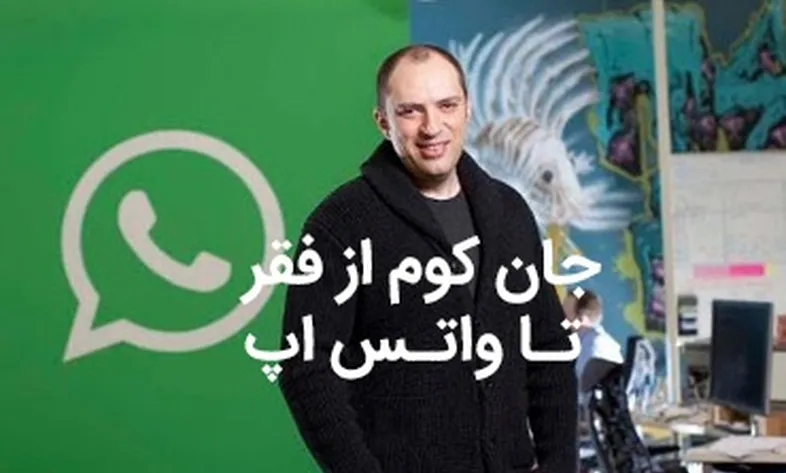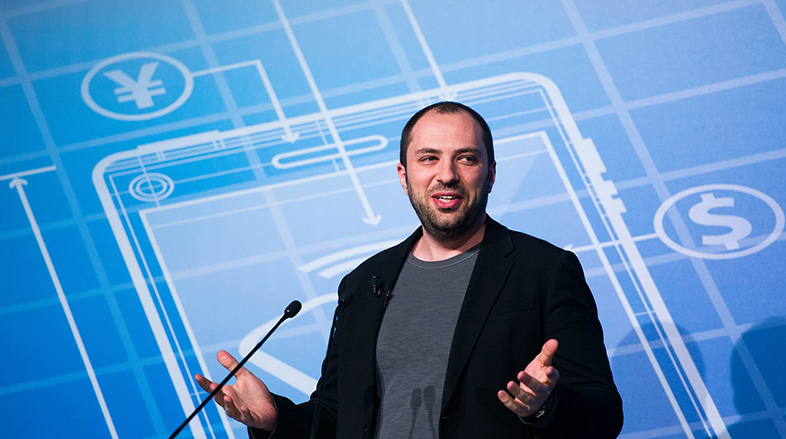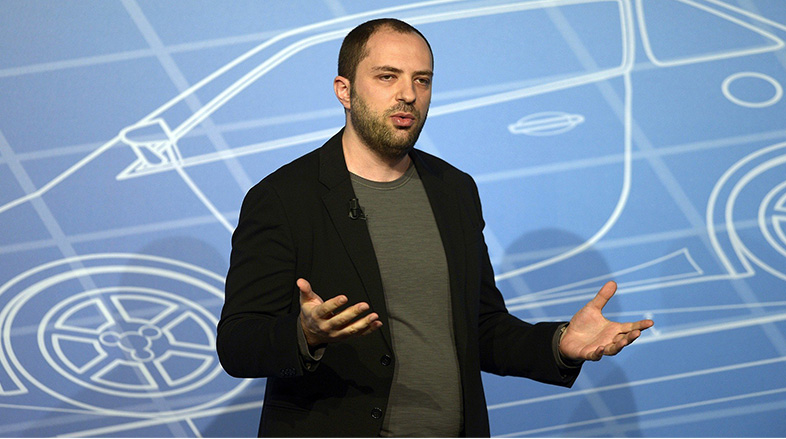Add line breaks online tools
Introducing the tool to add a hyphen online and go to the next line according to the specified character, which can be a period or letters.

John Koum, one of the founders of WhatsApp, was a poor refugee who became an influential billionaire with his perseverance.
Jan Koum, one of the founders of WhatsApp, was a poor refugee who, through his perseverance, was able to become an influential billionaire.
Born in 1976 in a small village near Kiev, Ukraine, John spent his childhood under the communists and the Soviet Union in a relatively poor family.
A house that didn't even have hot water, and this living situation continued for a long time.
He recently told The Independent in an interview: "You can read George Orwell's novel 1984 and get a sense of that situation, but it's a completely different story for me, I've experienced that situation in flesh and blood and it wasn't a pleasant experience at all!"
Since his family was Jewish and Jews did not have a good status in the Soviet Union at that time, Koum's mother decided to immigrate to America so that his father could join them later, something that never happened and his father was unable to reach his distant family.
However, at the age of 16, in 1992, John arrived in California, USA, and settled in a two-bedroom house in San Francisco with his mother, relying on financial and non-financial assistance from the US government.
At first, John worked sweeping the floor of a store near their home to pay the bills.
After finishing high school, he entered San Jose State University, but he did not last long there either and dropped out without completing his studies.
Through a security firm in San Francisco, he was able to enter Yahoo in 1997 and take on a small role in this large company for a few years. This happy event in John's life coincided with another sad news, the death of his father that year. Throughout his teenage years, he always missed being able to keep in touch with his father and other friends in Ukraine, because on the one hand, the phone costs were high for a newly arrived refugee, and on the other hand, there were always security concerns in Ukraine at that time.

Therefore, one of John's dreams since he was a teenager was to create a means through which people anywhere in the world could talk to each other easily, without cost, and without security concerns.
Koum's time at Yahoo led him to meet Brian Acton, another WhatsApp founder and longtime Yahoo employee. Their acquaintance led to a deep friendship that continues to this day and led to the founding of one of the most popular messaging apps.
Jan Koum is a person who doesn't make much noise in cyberspace, and the purchase of his company by Facebook made him more popular.
If we look at his social media profiles, we see that he did not even mention on his Twitter that he was the CEO or founder of WhatsApp, and only mentioned the company's name as his place of work.
On his LinkedIn profile, he only vaguely mentions his work experience at Yahoo, saying: "He did some work there."
Now let's move on to setting up and launching WhatsApp.
In 2009, before he had fully written the software version of WhatsApp, John registered his company in Mountain View and invited Acton to collaborate.
The name he chose for his software was derived from a term that is popular among Americans, "WhatsApp", meaning what's up? After writing his software, John puts it on the App Store for the Apple operating system, but the initial version does not receive very positive feedback and suffers from many flaws. It was here that John gave up on continuing the work, but was met with Acton's reaction: "If you back down now, you're no more of a fool! So pull yourself together."
John tries to fix the shortcomings of the initial version in the next update, and with the next update, not only will WhatsApp become a popular application, but its compatible version for Android, BlackBerry, and other modern phones will also be released.
One of the core principles of WhatsApp and its founders is an ad-free environment.

From the beginning, WhatsApp has not accepted or published any advertisements, and one of the main conditions of its managers for joining Facebook was to adhere to this principle in the future WhatsApp application.
Quoting the main character in the movie Fight Club, Koum says about advertising: "Advertising only makes you work for nothing and buy clothes and cars that ultimately serve no purpose."
WhatsApp's goal has always been to provide a safe environment for its users, so when you want to create an account on WhatsApp, you don't need to provide your age, gender, or location.
On the other hand, your messages are not stored on WhatsApp servers, which could compromise your cybersecurity if that were to happen.
John Koum says: "The storage of personal information on social networks and large sites is mainly because these companies want to have reliable statistics on their users so that they can send them advertisements related to their tastes and habits, but since WhatsApp is an ad-free environment, it does not see the need for this, and this will also increase the security of its users."
According to him, eighteen billion messages are exchanged on WhatsApp every day among its 450 million users, and if all of this were to be stored, it could be misused, especially by authoritarian governments, and jeopardize the security of users.
Perhaps this is one of the reasons why WhatsApp is so popular among internet users.
WhatsApp was eventually acquired by Facebook in 2013 for $16 billion at the time of the deal and $3 billion in fixed Facebook stock in future years.
The interesting thing is that years ago, both Koum and Acton refused to join the Facebook team and were rejected by the company's recruiting team - as well as Twitter.
Jan Koum, who owned 45% of WhatsApp's shares, has now become a man worth seven billion dollars and, in addition to executive management, also holds a seat on Facebook's board of directors.
In his recent interviews, he refers to the realization of the American dream, a dream that, in two decades, has transformed a poor refugee teenager struggling to make ends meet into a popular and successful billionaire, a billionaire who has made the world a better place to live in and connected more people than ever before.
Source: Itroz Blog


Follow the guide to set up your domain email on any device or OS, including both smartphones and computers, quickly and easily.

This guide is useful for automatically forwarding your website emails set up on your domain to other email accounts, such as Gmail and others.

Step-by-step guide to install Thunderbird on macOS; download, setup, and manage multiple email accounts easily and efficiently.
Comments (0)